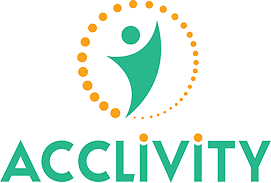The world of academia has radically changed over the last few years. The pandemic brought a new set of challenges, along with a shift from traditional classroom teaching, to virtual learning. As a result, academic professionals have collectively expressed concern over burnout. Although some circumstances are out of your hands, there are things you can do to limit your stress and reduce your chances of burnout.
1. Prioritize Your Health
It’s easy to put your needs last when things are overwhelming at work. For example, have you ever skipped your workout to get a head start on your tasks? It may seem wise to prioritize your work over your morning run or walk. However, you’re increasing your risk of burnout. Staying active and getting enough rest are essential components of your self-care routine.
2. Consider Changing Your perspective
If you’re constantly feeling overwhelmed, ask yourself if you can change your situation. Are there any responsibilities you can assign to others in your department to lighten your load? Maybe students can help with some of the tasks. Are you feeling cynical about your role in academia? If so, try to focus your efforts on the areas that you have the power to change, and avoid engaging in cynicism.
3. Find an Outlet for Your Stress
Everyone needs a healthy outlet for their stress. Reducing stress levels can improve your blood pressure and benefit your mental health. Take time to explore your interests and engage in an activity you enjoy that takes your mind off the stress of academia.
4. Set Boundaries and Manage Your Workload
Careers in higher education are notoriously detail-oriented, and it’s easy to get overwhelmed. If you’re interested in career advancement in higher education, you may feel tempted to take on every project thrown your way and answer every email you receive, regardless of how late it is. Unfortunately, this is a surefire way to experience burnout sooner rather than later. Set limits with what you are and aren’t willing to do, and stick to them to maintain a healthy work-life balance. Be strategic about what you say yes to and what you say no to by getting input from your coach or mentor.
5. Seek Help and Connect With a Career Coach
Career coaches are a vital source of professional support, especially for those in demanding academic roles. Not only can they offer an outside perspective on your situation, but they can also assist with your long-term career planning and help you stay motivated and accountable.
To learn more about avoiding burnout and increasing your chances of career advancement in higher education, book a complimentary consultation with Dr. Loren M. Hill. Dr. Hill can help you move your career in the right direction, teach you how to manage your stress, and provide the guidance you need to reach your goals.

